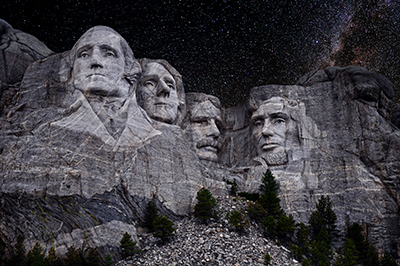Editors letter - Politics
Posted on September 29, 2020
 Historian Henry Adams one defined politics as the “systematic organization of hatreds.” Is was true in the Civil War era, and just as true today.
Historian Henry Adams one defined politics as the “systematic organization of hatreds.” Is was true in the Civil War era, and just as true today.
In 2020, who you hate, is who you are. Voters are largely driven by what they’re against, rather than what they’re for. Political scientists call the phenomenon negative partisanship, and its dominance has been on full display at both the Democratic and Republican national conventions.
At the Democrats’ soiree, a parade of speakers from former President Obama to several disaffected Republicans echoed the same message: “Our nation cannot survive another four years of Donald Trump, who has shown he “will tear our democracy down if that’s it takes to win.”
The Republicans this week countered with dire warnings that Democrats “won’t let you go to church” and will empty the prisons and fire the police and “invite MS-13 to live next door.”
It’s a far cry from Ronald Reagan’s “shining city on a hill” or Obama’s “hope and change,” but as political scientist Rachel Bitecofer observes, “Partisanship is a hell of a drug, especially when it/s cut with a heavy dose of existential fear.”
It’s hard to dispute the point. Both Democratic and Republican partisans, research has found, have come to despise the other tribe and their elected leaders more than they like their own leaders. Ticket splitting by voters has become rare, and in any given election, 90 percent of Democrats and Republicans vote for their party’s nominee. Harnessing fear and hatred can drive turnout, which has become the key to winning national elections.
But as America stumbles further down this road, we are headed toward profound danger. For democracies to function, voters and parties must be willing to accept defeat.
Once the votes are counted, the losers must concede their opponents have a legitimate, if temporary, claim on power. Will that happen this November—and if it doesn’t, what then?
William Falk
Editor-in-chief
Webmaster's note:
Sure this is about politics--but both parties are making racial issues part of their campaign this year.
SEE ALSO:
More Race Relations Articles
Sexual Bias Articles
Mental Health Articles
How Drugs and Alcohol Affect the Brain and Body
WA. Counselor Directory: find a therapist near you
How helpful is this web page to you?
(and how can we can improve this page for you?)
not helpful
very helpful
Other Articles
Race in America: policing, kneeling
Letters to the Editor, Northwest Voices, Opinion
Change policy culture “How police unions became such powerful opponents of change” [June 6, Nation), misses options to change police culture before officer contact with a union. The polic... read more
A monstrous breach of the First Amendment
“Congress shall make no law respecting an establishment of religion, or prohibiting the free exercise thereof; or abridging the freedom of speech, or of the press; or the right of people peaceably to a... read more
Confessions of a white baby boomer on race relations
Opinion: June 12, 2020 “Dr. Martin Luther King Jr. and Robert F. Kennedy were my heroes growing up in New York in the 1960s. My parents had taught me and my brother to embrace racial justice and tr... read more
To understand structural racism, look to our schools.
Education Lab - Local News
Education Lab is a Seattle Times project that spotlights promising approaches to persistent challenges in public education. It is produced in partnership with the Solutions Journalism Network and is funded b... read more




